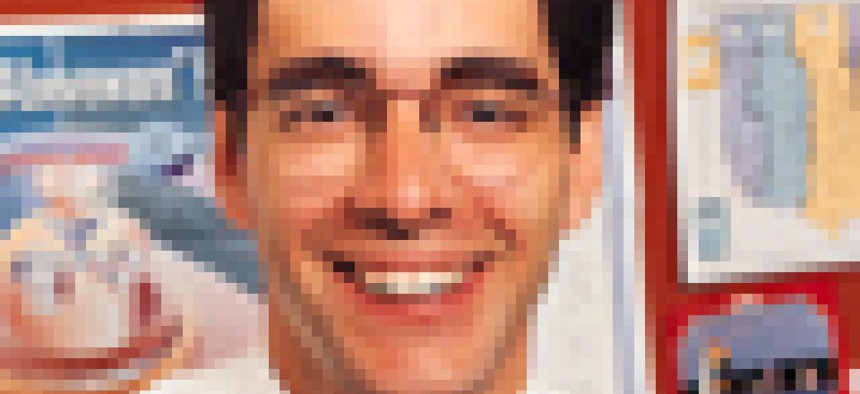MARKET SHARE

The world of information technology is always changing, and 1999 did not disappoint: It was the year of e-services.
By Bill LoomisThe world of information technology is always changing, and 1999 did not disappoint: It was the year of e-services.Tech stocks had a strong start in early January, with IT services' stock performance splitting into two very distinct groups: those perceived as e-business service providers and those not so perceived.From mid-January to early April, the IT service "incumbents" experienced a correction that sent stocks down 30 percent to 40 percent as investors worried that year 2000-related lockdowns would slow IT spending in the second half of the year. Markets tend to be efficient, and, indeed, most of the traditional IT service firms reported lower-than-expected profits in the second half of the year due to Y2K-related spending deferrals.In contrast, more than a dozen IT service firms focusing on e-business development went public in 1999, and the shares of some of them were trading several times higher than their respective offering prices at year's end. Government portal and e-business developer National Information Consortium Inc. (EGOV on Nasdaq) went public in July at $12, and its shares traded as high as $44 late last year. Among federal systems integrators, it was largely business as usual. There was not much impact from Y2K deferrals in the federal sector, and publicly traded integrators generally met investors' earnings expectations for 1999. The biggest trend in the federal sector was consolidation. Three large publicly traded federal integrators were acquired in 1999. Analysis & Technology was picked up by Anteon Corp., Nichols Research was purchased by Computer Sciences Corp., and Titan Corp. announced plans to buy Advanced Communication Systems Corp. While consolidation can be expected when investors require 15 percent to 20 percent growth in both annual revenue and earnings from companies in an industry growing at 3 percent, the pace picked up significantly last year. Take-out valuations among the public companies varied, averaging about 80 percent of revenue. So what is ahead in 2000? The combination of pent-up demand from Y2K deferrals, a new desktop and networking cycle driven by Windows 2000, and the continued explosion in e-business systems development will drive IT spending higher and put more strain on the IT labor market. Companies did not spend several hundred billion dollars fixing systems only to throw them away in a year. Thus, there should be projects in application maintenance, custom software development and enterprise application integration.I expect to see large businesses and government initiate multimillion-dollar e-business projects throughout 2000. Last year, many companies were reluctant to expand their e-business pilots and tie in their back-end systems (database, enterprise resource planning software, etc.) because of Y2K concerns. Consolidation also is likely to continue among federal integrators. There have been several backed by private investors seeking to consolidate the sector, with the intent of selling the integrated unit or going public. As these companies reach several hundred million dollars in yearly revenue, there could be a new publicly traded federal IT company or two. The government should continue to move more toward e-business as the Internet provides the ideal medium for government to work and communicate with its citizens. Packaged software implementation should continue to show strong growth in government, including enterprise resource planning software. And government outsourcing seems to be picking up as well, with the large vendors focusing on several large opportunities in this area. As for the valuations of publicly traded federal integrators in 2000, that will depend largely on two factors: how the overall stock market performs and whether those companies deliver expected and consistent results. But do not look for valuations in the federal space to track much higher unless growth rates do the same. Bill Loomis is managing director of the Technology Research Group at Legg Mason Wood Walker Inc. in Baltimore. He can be reached at wrloomis@leggmason.com. Legg Mason Wood Walker Inc. makes a market in Advanced Communication Systems Corp. This information is not guaranteed as to completeness or accuracy, and is not intended to be an offer to buy or sell any security.


Bill Loomis
NEXT STORY: DataStream

